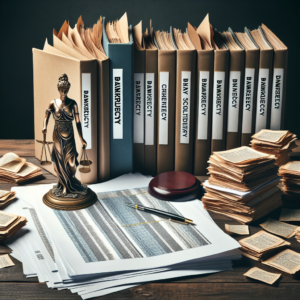Unprecedented Federal Court Rulings: A Turning Point in Justice
In a series of unprecedented federal court rulings, the judicial landscape in the United States has undergone significant transformation, prompting discussions about the future of justice and civil liberties. These rulings, characterized by their bold interpretations of constitutional rights and legal precedents, have not only reshaped the legal framework but also ignited passionate debates among lawmakers, citizens, and advocacy groups. As the nation grapples with these changes, it is essential to understand the context, analyze key cases, and explore the implications for justice and civil rights.
Understanding the Context: The Landscape of Federal Court Rulings in Recent Years
In recent years, federal court rulings have increasingly reflected a dynamic and often contentious legal landscape. The Supreme Court and lower federal courts have faced a myriad of cases that challenge established norms, particularly in areas such as voting rights, healthcare, and immigration. The polarization of political ideologies has influenced judicial appointments, leading to a bench that is more divided than ever. This environment has fostered a climate where judges feel empowered to make bold decisions, often resulting in rulings that diverge from previous legal interpretations. As a result, the federal judiciary has emerged as a critical battleground for civil rights and liberties, with rulings that resonate far beyond the courtroom.
Key Cases: Analyzing Landmark Decisions That Shaped Current Legal Precedents
Several landmark cases have emerged as pivotal in shaping the current legal landscape. For instance, the recent ruling in Dobbs v. Jackson Women’s Health Organization overturned nearly 50 years of precedent established by Roe v. Wade, igniting a national debate on reproductive rights. Similarly, the decision in Brnovich v. Democratic National Committee significantly weakened the Voting Rights Act, raising concerns about voter suppression and access to the ballot. Another notable case, Bostock v. Clayton County, expanded protections against employment discrimination based on sexual orientation and gender identity, marking a significant step forward for LGBTQ+ rights. These cases, among others, illustrate the court's willingness to confront contentious issues head-on, often with far-reaching implications for American society.
Implications for Justice: How Recent Rulings Affect Civil Rights and Liberties
The implications of these recent rulings extend deeply into the fabric of civil rights and liberties in the United States. The rollback of established precedents has raised alarms among civil rights advocates, who argue that such decisions undermine decades of progress. For instance, the erosion of voting rights protections threatens to disenfranchise marginalized communities, while restrictions on reproductive rights could lead to increased health risks for women. Conversely, rulings that expand protections for LGBTQ+ individuals signal a shift towards greater inclusivity. The tension between these opposing trends highlights the precarious nature of justice in a rapidly evolving legal landscape, where victories for some may come at the expense of others.
The Role of Judicial Activism: Examining the Influence of Judges in These Rulings
Judicial activism has emerged as a central theme in discussions surrounding recent federal court rulings. Critics argue that some judges have overstepped their bounds, using their positions to impose personal ideologies rather than adhering strictly to the law. This perception of activism has fueled debates about the role of the judiciary in a democratic society. Proponents of judicial activism contend that it is necessary to adapt legal interpretations to contemporary societal values and injustices. The dichotomy between restraint and activism raises fundamental questions about the judiciary's role as a check on legislative power and its responsibility to protect individual rights, making it a critical area of examination in the context of recent rulings.
Public Response: Reactions from Citizens and Advocacy Groups to Court Decisions
The public response to these unprecedented federal court rulings has been marked by a mix of outrage, support, and activism. Advocacy groups have mobilized to challenge decisions they perceive as regressive, organizing protests and campaigns to raise awareness about the implications for civil rights. Conversely, some segments of the population have celebrated these rulings as victories for conservative values, viewing them as a restoration of traditional norms. Social media platforms have become battlegrounds for these discussions, amplifying voices on both sides of the spectrum. The polarized reactions reflect a broader societal divide, underscoring the importance of civic engagement and dialogue in navigating the complexities of justice in America.
Looking Ahead: Potential Future Developments in Federal Court Jurisprudence
As the legal landscape continues to evolve, potential future developments in federal court jurisprudence remain uncertain yet critical. The upcoming Supreme Court sessions are poised to address several contentious issues, including affirmative action, gun control, and immigration policy. Additionally, the composition of the judiciary may shift with new appointments, further influencing the trajectory of legal interpretations. Legal scholars and practitioners are closely monitoring these developments, as they could herald significant changes in the protection of civil rights and liberties. The ongoing dialogue surrounding judicial activism, public sentiment, and legislative responses will undoubtedly shape the future of federal court rulings, making it imperative for all stakeholders to remain engaged in the democratic process.
In conclusion, the recent unprecedented federal court rulings represent a turning point in the American legal landscape, with profound implications for justice, civil rights, and the role of the judiciary. As the nation grapples with these changes, it is essential to remain vigilant and engaged in discussions about the future of justice in the United States. The interplay between judicial decisions, public response, and advocacy efforts will continue to shape the trajectory of civil liberties, making it imperative for citizens to actively participate in the democratic process to safeguard their rights and freedoms.
